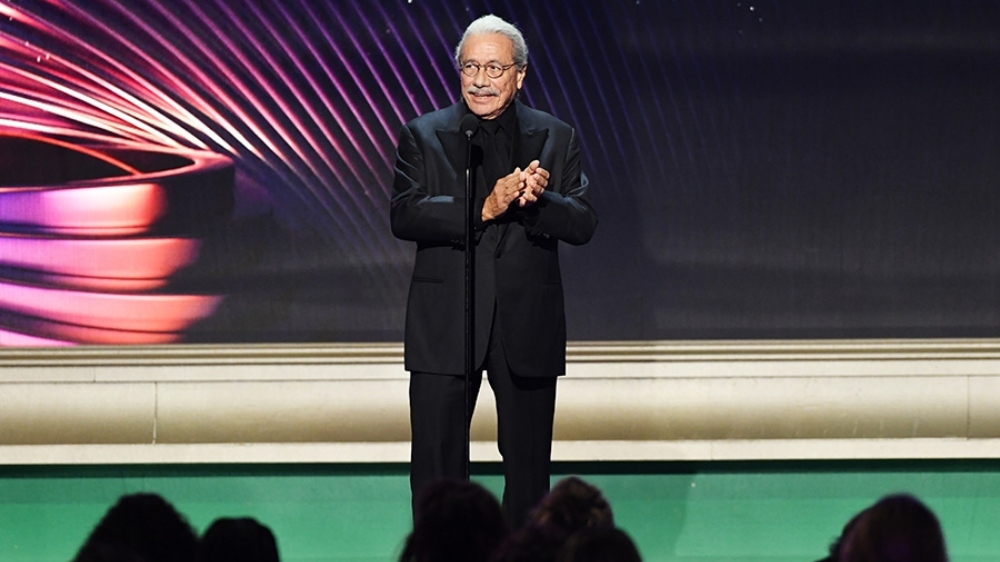
On the second night of the Creative Arts Emmys (for indeed, it’s an event so sprawling, with so many categories, that it takes two evenings, a week ahead of the Primetime Emmys, to get it all done), Edward James Olmos kicked things off, exhorting the crowd into celebratory response. He started by saying that he likes “the Emmys (the more headline-grabbing, live broadcast ones), I get it, but no one works as hard as the Creative Artists do. No actor I’ve ever seen. You arrive before us, and leave after us… and make us what we are, so we can stand there and tell the story.”
There was more exhortation of the crowd, with the additional observation that “nothing attacks the subconscious like an audio visual event,” referring to the power of the medium that was about to bestow more accolades upon itself.
At least, it sounded like “attacks,” though perhaps Olmos said “affects.” The crowd was pretty excited either way. And it would certainly explain how “TV” — in its broadest sense — has come to, well, affect or attack everything from the stories we tell, to the things we buy, the politics we pursue, and the events we consider “real.” Or not.
Meanwhile, if you were looking to parse themes from the two evenings, you might have wondered if you were back at the Grammys at LA Live, on Saturday night, given how well both the Beatles and Adele did (with their respective shows winning five awards each), along with the hip-hop royalty that participated in the latest Super Bowl Halftime show.
On Sunday night, the tea leaves that were brewing also hinted at a good run for The White Lotus on the above-the-line side.
On which note, before we dive in more fully, the caveats here are that while this doesn’t strive to be a complete winners rundown (you’ve already seen that list, and have probably swapped congratulatory texts by now), we will get to most of Sunday nigiht’s winners in our follow-up, and tend to anything we’ve missed, next week. That will be in the aftermath of those “main” Emmys, so we’ll see how the prognostications and emerging patterns finally pan out.
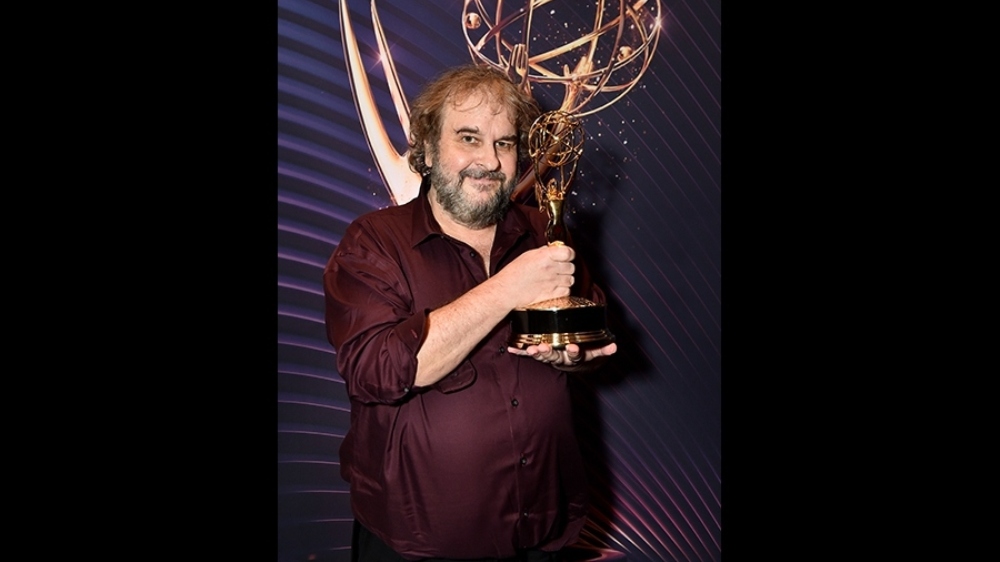
Meanwhile, one thing we learned that first kudos night is that there is good “Mal”ware in the world, after all. In this case, a particular machine learning technology — named for late Beatles road manager and jack-of-all-trades Mal Evans — that was an in-house invention credited by The Beatles: Get Back’s winning sound editing team as having helped them “make sure Peter [Jackson]’s storytelling narrative was at the forefront,” as the director/producer began teasing out his narrative from many hours of never-before-seen footage. Mal also helped them distinguish, and refine, the audio from the Let It Be documentary that preceded Get Back.
Martin Kwok, who oversaw the team as Supervising Sound Editor, called it “the most profound moment I’ve had in audio,” in the 20 or so years he’d been in the field.
As for the iconic tunes (and the fragments, and unreleased ones) that threaded through Get Back, the show’s trio of mixers won as well, including Giles Martin, son of original Beatles producer George Martin, who in turn credited Glyn Johns — himself one of the key characters in the series — for having “recorded the tracks brilliantly” during the original filming, making Martin’s job that much easier.
Martin, who won alongside Michael Hedges, Brent Burge, and Alexis Fedorof, also wryly noted that he’d been “working on Beatles music for a long time,” and — since his father met his mother at Abbey Road studios — “was probably conceived in a cabinet [there].”
He also said he was older than his father was when Let It Be came out, and one of his daughters, seeing a picture from that time, asked if that was him. “No,” Giles replied, “that’s your grandfather.”
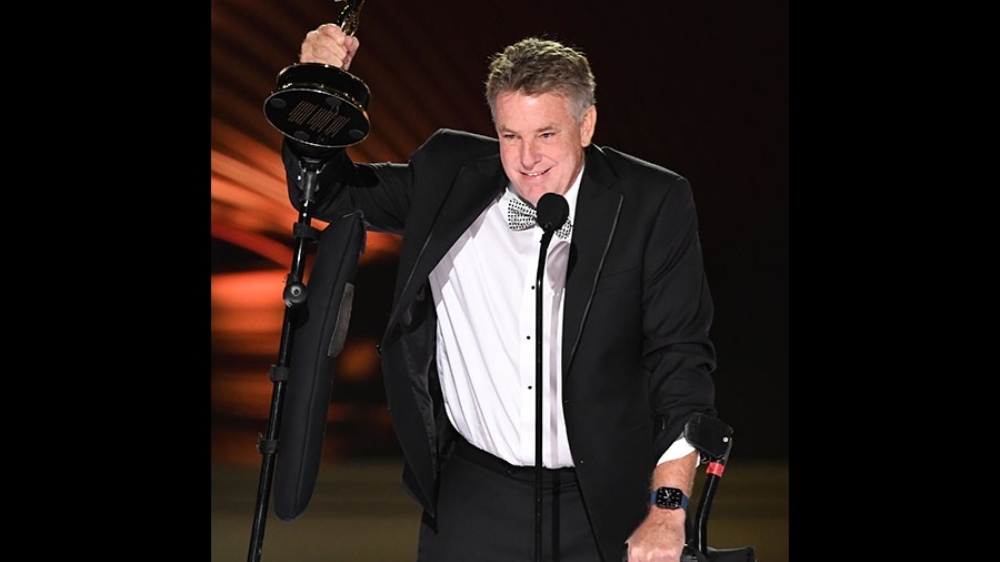
Probably the only reason Get Back didn’t also nab the cinematography award in its category was because the whole series was archival footage, thus clearing the way for Mike Prickett and Laurent Pujol to win for their frequently astonishing work on HBO Max’s large-wave-as-white-whale surfing opus 100 Foot Wave.
Prickett, who walks with crutches after having heroically rescued a diver during a shoot some years back, and getting bubbles in his spine as he shot to the surface with no oxygen left, was rather touchingly held up by Pujol, as they took questions backstage.
Prickett would oversee the shooting – both in Nazaré, Portugal, whose undersea canyons produced the titular waves, and in other spots around the world — with Pujol in the water, on a Jet Ski, where, he said he kept in contact with “a spotter on the cliff, letting us know where to go.”
And into the waves they went — not only with RED cameras — but a lot of gear they’d invented, such as remote control cameras on those Jet Skis that were “controlled from the beach,” which, Prickett noted, “had never been done before.”
Pujol said he would “just go out and hope for the best,” and in this case, many good things happened. Not always to the world-class surfers occasionally knocked out by those monster waves, but certainly to the series as a whole (originally intended as an IMAX film, before HBO got ahold of it), as a second season is now being prepped.
Ahead of them, Life Below Zero won the evening’s other cinematography award, in the Reality Programming category, with Michael Cheeseman (who won along with Danny Day and Simeon Houtman) thanking “the other nominees in this category. You guys paved the way for me to stand here today.”
And later, standing in the interview room, he talked about “terabytes and terabytes of footage ,” mostly captured with Canon glass on Sony cameras — for “12 minutes of TV.” But he added, “you go into documentarian-style shooting,” to get those dozen minutes, since “capturing those moments,” from tundra to ice floe to mountains and more, “is what the essence of our show is. It’s all about moments.”
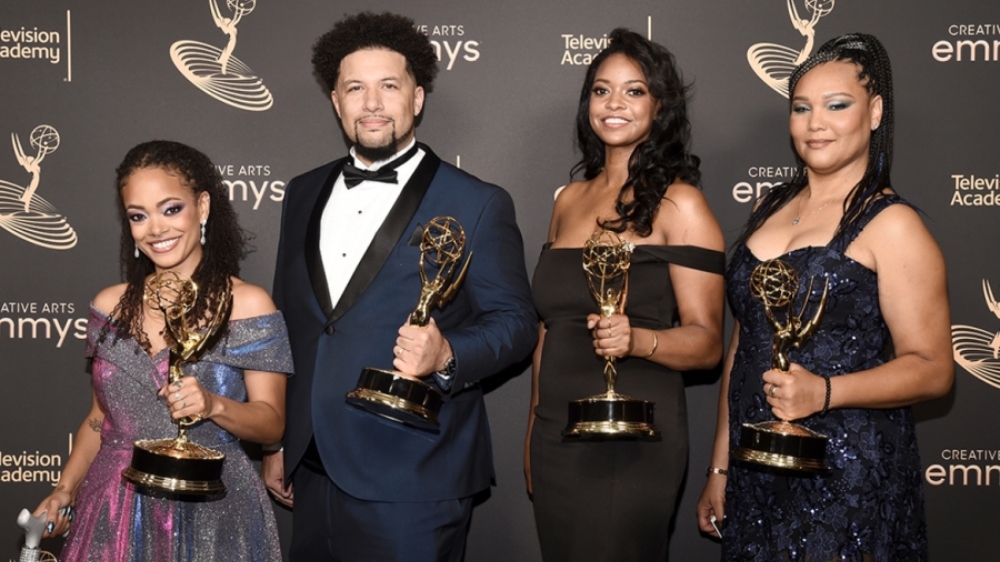
Many at the Creative Arts Emmys were savoring their own moments, since one common refrain was the disbelief that they were even there at all — usually followed with the hope that others would follow in their footsteps. The editing team for A Black Lady Sketch Show, who’d just won in the Outstanding Picture Editing for Variety Programming category (the show itself would later win for Outstanding Variety Sketch Series) said it was “not very often that people who look like us” get to stand on that stage.
Back in the press room, the team of Stephanie Filo, Taylor Mason, Bradinn French, and S. Robyn Wilson remarked that the world of “post-production [was] not diverse,” and they hoped to “inspire people who look like us to join this side of the camera.”
Their own excitement was, if anything, topped by the winner for Outstanding Music Direction, for his staging of Super Bowl LVI’s halftime show. Back in the media room, he happily declared “my name’s Adam Blackstone and I just won an Emmy!” He’d been nominated twice previously for his Super Bowl work, but said that he “never thought as a black and brown boy growing up in New Jersey” that he’d ever win an award like that.
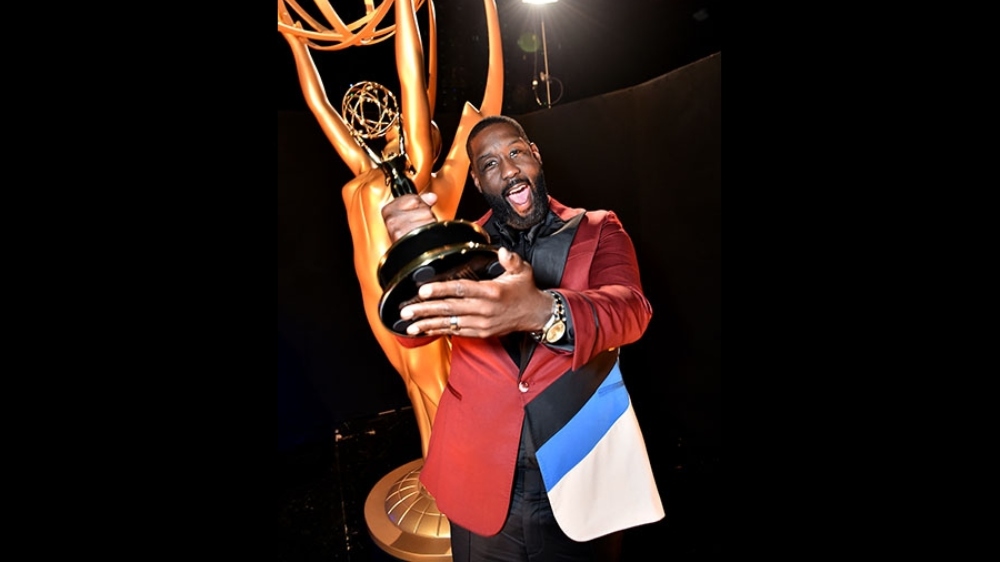
Blackstone, who is also a composer himself, oversaw a show of hip-hop legends for the big L.A.-based game, including Dr. Dre, Snoop Dogg, Mary J. Bilge, Eminem, and Kendrick Lamar.
“Each of those five artists could’ve headlined [by themselves],” he said, but he relished getting to “put hip-hop on a national stage,” and bringing that rich cultural legacy to a wider audience.
Of legacies, he said, “that word means a lot to me.” Especially as the father of two children. “Tomorrow is not promised — we’ve all seen people come and go.”
Which is true of life in general, and showbiz in particular. But Blackstone was also determined to stay in the moment — his moment — a bit longer. “I could stay here,” he said, at the end of his Q&A. “I will answer anything!”
And indeed, readers, we could stay too, but instead we’ll be back with some answers, and probably a few more questions, in our Creative Arts wrap-up next week. Until then.
 Mark London Williams is a BTL alum who currently covers Hollywood, its contents and discontents, in his recurring “Across the Pond” dispatch for British Cinematographer magazine, contributes to other showbiz and production-minded sites, and musters out the occasional zombie, pandemic-themed, or demon-tinged book and script, causing an increased blurring in terms of what still feels like “fiction.”
Mark London Williams is a BTL alum who currently covers Hollywood, its contents and discontents, in his recurring “Across the Pond” dispatch for British Cinematographer magazine, contributes to other showbiz and production-minded sites, and musters out the occasional zombie, pandemic-themed, or demon-tinged book and script, causing an increased blurring in terms of what still feels like “fiction.”
Mark London Williams’ Union Roundup column will appear every Tuesday. You can reach him to give him tips and feedback at [email protected]. He can also be found on Twitter @TricksterInk.





